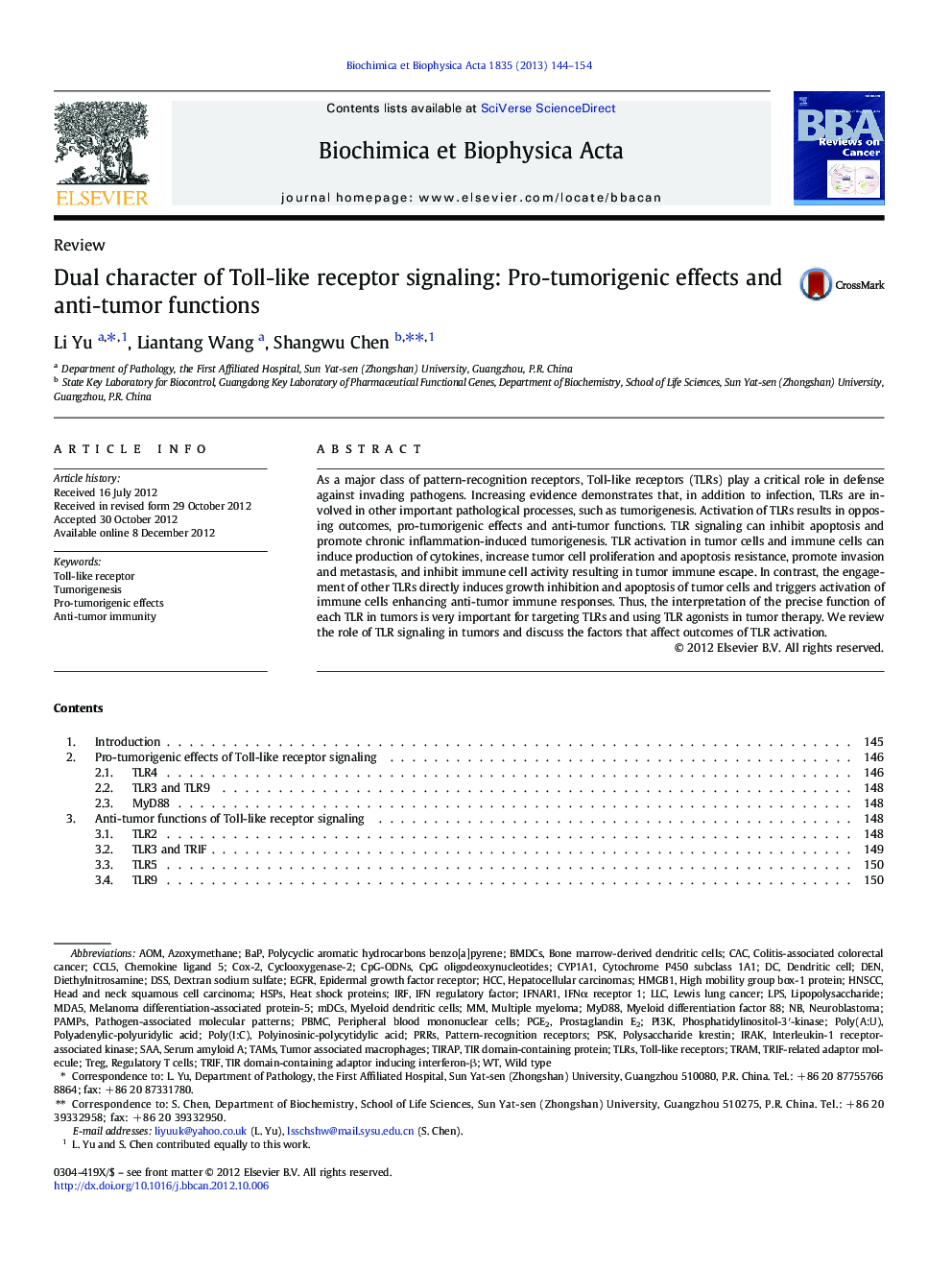| Article ID | Journal | Published Year | Pages | File Type |
|---|---|---|---|---|
| 2100935 | Biochimica et Biophysica Acta (BBA) - Reviews on Cancer | 2013 | 11 Pages |
As a major class of pattern-recognition receptors, Toll-like receptors (TLRs) play a critical role in defense against invading pathogens. Increasing evidence demonstrates that, in addition to infection, TLRs are involved in other important pathological processes, such as tumorigenesis. Activation of TLRs results in opposing outcomes, pro-tumorigenic effects and anti-tumor functions. TLR signaling can inhibit apoptosis and promote chronic inflammation-induced tumorigenesis. TLR activation in tumor cells and immune cells can induce production of cytokines, increase tumor cell proliferation and apoptosis resistance, promote invasion and metastasis, and inhibit immune cell activity resulting in tumor immune escape. In contrast, the engagement of other TLRs directly induces growth inhibition and apoptosis of tumor cells and triggers activation of immune cells enhancing anti-tumor immune responses. Thus, the interpretation of the precise function of each TLR in tumors is very important for targeting TLRs and using TLR agonists in tumor therapy. We review the role of TLR signaling in tumors and discuss the factors that affect outcomes of TLR activation.
